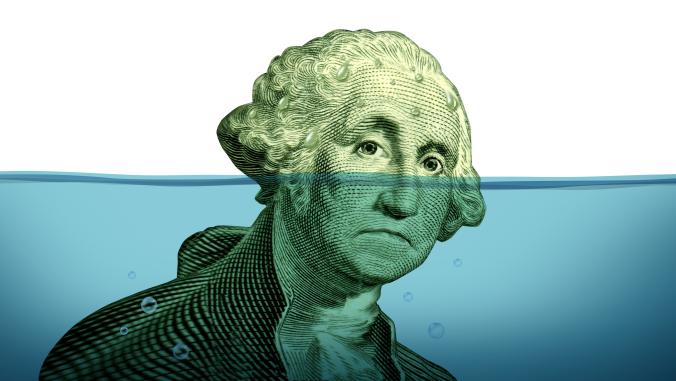What's the business case for sustainable development?
A new taskforce launched by (you guessed it) Unilever CEO Paul Polman aims to show how businesses can benefit from the U.N. Sustainable Development Goals.

The role of business in overcoming global problems such as extreme poverty, finite natural resource exploitation and climate change received a boost last week with the launch of a commission that aims to highlight the big rewards awaiting firms that take a lead in poverty reduction and sustainable development.
Launched at the World Economic Forum, the Global Commission on Business and Sustainable Development (GCBSD) aims to articulate and quantify the economic case for businesses engaging in sustainable development.
The new coalition, formed by Unilever chief executive Paul Polman and former United Nations Deputy Secretary General Mark Malloch-Brown, plans to demonstrate the economic advantages offered to businesses that help achieve the 17 Sustainable Development Goals (SDGs) adopted by the U.N. in September.
"We have an opportunity to unlock trillions of dollars through new markets, investments and innovation — but to do so, we must challenge our current practices and address poverty, inequality and environmental challenges," said Polman in a statement. "Every business will benefit from operating in a more equitable, resilient world if we achieve the [SDGs]."
The commission aims to show how new business models can align profitability with social purpose and demonstrate the significant economic rewards to be reaped from tackling challenges such as poverty, inequality and environmental stress.
We have an opportunity to unlock trillions of dollars through new markets, investments and innovation — but to do so, we must challenge our current practices and address poverty, inequality and environmental challenges.
It brings together a large coalition of business and civil society leaders, such as Peter Bakker, president of the World Business Council on Sustainable Development (WBCSD); John Danilovich, secretary general of the International Chamber of Commerce (ICC); and John Fallon, chief executive of U.K. publishing firm Pearson.
"A massive prize awaits business if it successfully ushers in an era of shared prosperity and increased sustainability," said Malloch-Brown in a statement. "Governments and international organizations alone cannot build the future we need. Business is the key to accelerating the transition."
As well as showcasing the new markets, investment opportunities and innovations set to be created by working towards the SDGs, the commission also will highlight the risks to performance and stability in the business world if the world fails to address global challenges.
The GCBSD is backed by a host of organizations including the U.N. Foundation and the Overseas Development Institute (ODI), with financing from the Rockefeller Foundation, Bill and Melinda Gates Foundation and the governments of Australia, Denmark, the Netherlands, Sweden and the U.K.
Its report, set for release next year, will outline new business and financial models alongside market opportunities in sustainable approaches — and promote the necessity of business working alongside governments, international organisations and civil society.
"Right now there's a gap between the development world and the business world," a spokeswoman for the GCBSD told BusinessGreen. "We really hope that this report will be the first step in starting to have mutual understanding between groups that really have a lot in common but maybe don't often always speak the same language."
This story first appeared on:





